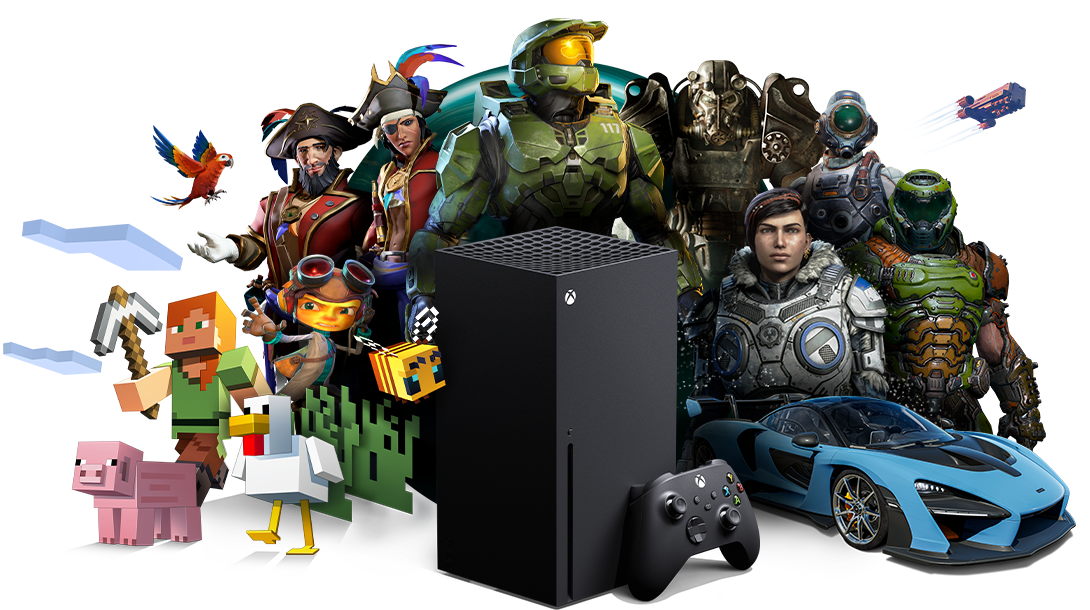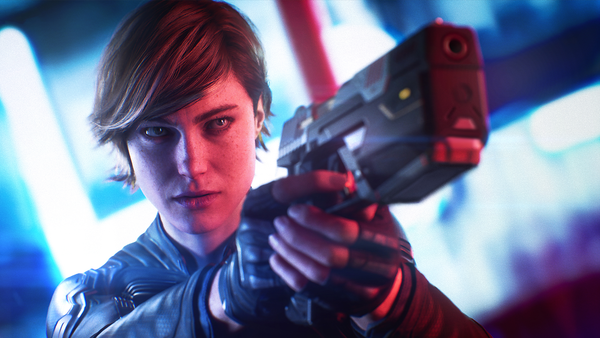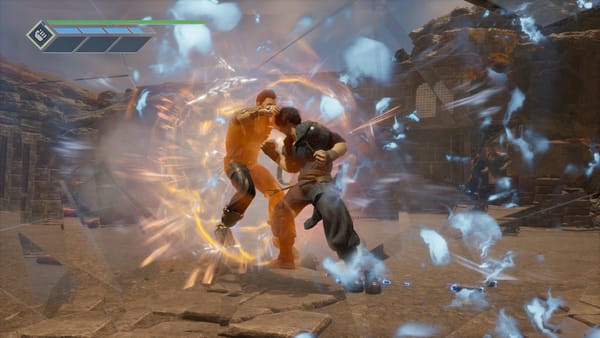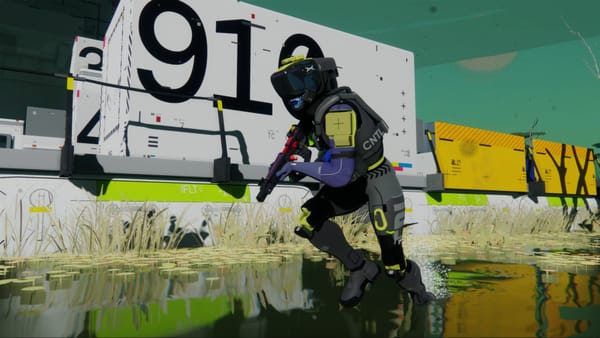#256: Spencer's lament
Xbox is dying, and it's definitely not Big Phil's fault.

Phil Spencer spoke to the press at GDC last week, offering some context/spin on Microsoft’s recent manoeuvres, while dropping a few now-customary hints about the Xbox division’s future plans. I take one issue with this: I am no longer sure Xbox has much of a future to speak of. Moreover: I think Phil Spencer, for so long cast as Xbox’s saviour, may ultimately be remembered as the man who killed it.
Speaking to Polygon, which has chopped the interview up into multiple news pieces in the classic early-2010s style, Spencer lamented that the game industry simply isn’t growing enough, explaining that all of Microsoft’s recent moves — the Acquisition Blizzard concessions, the decision to take Xbox exclusives to PS5 and/or Switch, the layoffs — have been designed to counter this unavoidable, irrefutable truth. Without new customers, Spencer says, “everybody else’s customer is your success state. You can’t succeed unless you draw in customers from other publishers and other platforms. And because you’re not finding new customers with the games that you’re building, everybody’s kind of fighting over the same-size pie.
“When you have an industry that is projected to be smaller next year in terms of players and dollars, and you get a lot of publicly traded companies that are in the industry that have to show their investors growth — because why else does somebody own a share of someone’s stock if it’s not going to grow? — the side of the business that then gets scrutinised is the cost side. Because if you’re not going to grow the revenue side, then the cost side becomes challenged.”
Now look, Spencer is right, to a degree, and if this were coming from a punter, a rank-and-file developer at a random game studio, or a modestly successful newsletter idiot it would be fair comment. But Phil! Mate! I am sorry to have to point this out to you, but you’re the head of Xbox. I’m not sure you get to pin all this on the macroeconomic this-and-that, you know? You have had, I think it fair to say, a degree of agency in all this. Indeed, there are maybe half a dozen people with the power to actually change the shape of the game industry, and for the last ten years you have been one of them.
I do not see much point in dwelling on how we got here, because I think it is quite obvious to us all what’s gone wrong. All of Spencer’s big bets — the pivot to subscriptions, the variable hardware SKUs, the spending spree of studio acquisitions — were contingent on Xbox not just being, to borrow the Xbox tagline, ‘the best place to play’, but the best place to play the best games. If there’s one lesson we can take from the Spencer era it’s that you can enact all the disruptive change you like, but you cannot disprove this industry’s oldest truth: great games sell consoles. A hundred billion dollars later, Xbox still doesn’t have them — if anything I would argue its firstparty output has got worse since the shopping spree began — and its struggles are, as such, no surprise at all.
Spencer spent part of his Polygon interview musing airily about a dedicated Xbox handheld, which I’m sure seems like a no-brainer in a world where Steam Deck exists. But I imagine it will be an alarming prospect for a development community that is slowly cottoning onto the fact that making games for Xbox is too much of a faff given the tepid rewards on offer. GI.biz’s Chris Dring returned from GDC with tales of publishers questioning their future support of a platform that bakes in so much risk — a dominant subscription service cannibalising game sales; the need to ensure parity across Series S and X further increasing sky-high development costs — and offers such a small audience in return. Now you want a handheld version as well? Best of luck with that.
Now that all his big bets have failed, Spencer is turning to corrective measures — short-term fixes that might juice the numbers in the next couple of P&Ls, but seem destined to further weaken the Xbox ecosystem down the line. Bringing the likes of the Epic Game Store and Itch.io to Xbox consoles would confuse the value proposition, give users more ways to give money to people that aren’t Microsoft, and do nothing to transform Xbox’s fortunes. I would love to have my Itch library on a console, don’t get me wrong, but if Spencer thinks that’s going to move the needle in any meaningful way then I have some magic beans to sell him. And if he thinks that this is a two-way street — the first step on a journey that ends with Game Pass on PS5, Switch and Steam — then he has truly lost the plot.
Taking former exclusives to rival platforms is yet more short-term thinking. Sure, it may pump the numbers a bit, but each new port is one less reason for a potential new customer to buy an Xbox, and one more reason for Xbox owners to switch sides and abandon the platform for good. Once again I cannot see a way in which this ends with Xbox, as we know it today at least, getting stronger. Let us assume, charitably, that Sea Of Thieves sells 5m copies at $40 a pop when it launches on PS5 next month. Let us even more charitably pretend that means $200m in revenue for Microsoft, ignoring distribution and marketing, Sony’s platform cut, and the cost of making the port in the first place. Last quarter, $200m would have increased Microsoft’s revenue by about 0.3%. That is merely a rounding error for a company of that size, and where the health of its gaming division is concerned, it is little more than a sticking plaster.
To be clear, I feel bad for Spencer. He seems a decent sort. I think he’s come into this with the best of intentions, and in a parallel universe where every horse he backed romped home, he would be credited with transforming, and perhaps even saving, the game industry. In another, where instead of spending $70bn on Activision Blizzard he spent it on 230-odd games with the same budget as Spider-Man 2, perhaps Xbox is flying. But in our world he has spent ten years and gargantuan amounts of money taking Xbox from third place to third place, and that is not the market's fault. If the writing isn’t on the wall for Xbox as a whole, then it certainly could be for him.
Free readers, it is here that we must say goodbye. To unlock the rest of today’s edition — with a roundup of the rest of the week’s news, the famous Hit Points Mailbag, and a fun new section about a game I’ve been playing recently, kicking off with Dragon’s Dogma II — perhaps I might interest you in a paid subscription?
Just £4 a month gets you weekly exclusives, access to the full archive and cheery Hit Points Discord, and the occasional (and soon to return! I promise!) developer interview series Max HP. Plus, of course, the warm fuzzy feeling of supporting my independent, ad-free, SEO-ignorant game-industry nonsense, direct to your inbox, freed from the horrors of the modern internet. Click the thing! Please?





